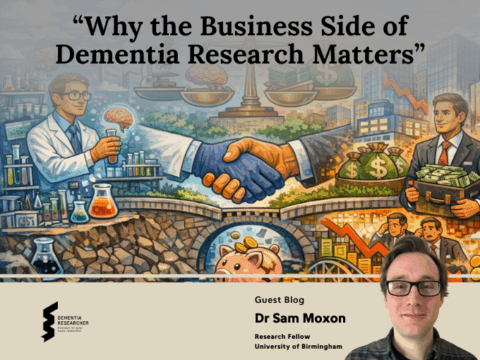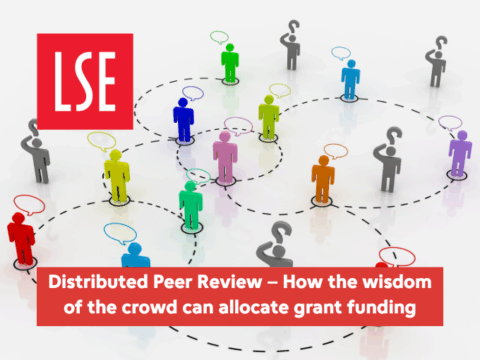 Ever wondered where research funding comes from? (I’m writing this from a UK perspective, but it isn’t too different elsewhere in the world). As you would expect that question can be answered simply, or you can really get into the detail. The simple answer is government, charity, philanthropy, industry and non-governmental organisations.
Ever wondered where research funding comes from? (I’m writing this from a UK perspective, but it isn’t too different elsewhere in the world). As you would expect that question can be answered simply, or you can really get into the detail. The simple answer is government, charity, philanthropy, industry and non-governmental organisations.
In this article I’m going to focus on the government funding streams – mostly inspired by today’s announcement from the UK Department for Business, Energy and Industrial Strategy (BEIS) on budget allocations for the 2021/22 funding year. BEIS is an acronym you may not have come across, but essentially they’re the ones that provide funding to a whole range of research councils, and research programmes – who in turn, directly or indirectly fund some of your work. Specifically:
- UK Research and Innovation (UKRI)
- Arts and Humanities Research Council (AHRC)
- Biotechnology and Biological Sciences Research Council (BBSRC)
- Economic and Social Research Council (ESRC)
- Engineering and Physical Sciences Research Council (EPSRC)
- Innovate UK
- Medical Research Council (MRC)
- Natural Environment Research Council (NERC)
- Research England (RE)
- Science and Technology Facilities Council (STFC)
*Although you will notice that all of these agencies recently went through a rebranding, so theirs logos and website all now sit under UKRI
BASE is also responsible for Official Development Assistance (something you may have heard of following recent controversy over budget reductions), and giving money to the EU, so that UK researchers can have access to larger pools of research funding through grant schemes such as Horizon Europe (don’t worry, they did allocate £1.29 billion) other things… like the UK Space Agency, Met Office and much more.
Of course the government does have other mechanisms for funding research. In addition to the organisations listed above, there is also the National Institute for Health Research (NIHR) which itself has a budget over £1 billion – coming from the Department of Health & Social Care (DHSC). Then NHS England and other organisations like Health Education England, also provide research funding, which ultimately comes from taxpayers.
Okay, so having ascertained the flow of funding, let’s talk turkey.
What did we discover from today’s budget announcement?
- BEIS is allocating a budget of £11.35 billion for research and development (R&D) for the financial year 2021 to 2022.
- Allocations reflect government’s priorities of supporting the foundations of the UKs world leading R&D system to ensure it is able to help lead the recovery from COVID-19, whilst also investing in strategic outcomes, including innovation, net zero, space and levelling-up.
- Overall R&D spending will be £14.9 billion, the highest level spent in four decades, demonstrating the UKs progress towards its target to increase total public and private R&D investment to 2.4% of gross domestic product (GDP) by 2027.
- As part of the UK-EU Trade and Cooperation Agreement (TCA), the UK has agreed to associate to Horizon Europe and other EU programmes including Euratom Research and Training. This will ensure UK researchers and business have access to the largest collaborative research and development programme in the world – with a budget of c. €95 billion.
The last and most important point for our readers – as dementia researchers…
Alongside the usual funding to the agencies listed. BEIS will make a contribution to the work of medical research charities (which would include organisations like Alzheimer’s Research UK and Alzheimer’s Society), whose fundraising and lifesaving work has been disrupted over the course of the pandemic. £15 million will come from BEIS and a further £5 million from DHSC. This is aimed at supporting early career researchers to protect the pipeline of research superstars who will have a fantastic impact, and improve patient lives, in the future.
You can read the full BEIS announcement and get the details here in their publication.
What did the charities say in response to this news?
“This amounts to only a small step on the journey towards the funding that is so desperately needed. The threat to the continuing strength of charity funded medical research is clear and present. Health conditions do not magically disappear until the funds are available for research to address them. For many people, their family and friends, charity funding for research is their hope for a future with more time with loved ones and a better quality of life. However, we’re pleased that the Government have recognised the importance of charity funded research and are grateful that even a limited sum has been found to support some charity funded early career researchers.”
Hilary Reynolds, CEO of the Association of Medical Research Charities
“This is welcome news and a step in the right direction. It’s vital we support researchers at the start of their careers.”
Hilary Evans, CEO of Alzheimer’s Research UK (via Twitter)
Author
Adam Smith was born in the north, a long time ago. He wanted to write books, but ended up working in the NHS, and at the Department of Health. He is now Programme Director in the Office of the NIHR National Director for Dementia Research (which probably sounds more important than it is) at University College London. He has led a number of initiatives to improve dementia research (including this website, Join Dementia Research & ENRICH), as well as pursuing his own research interests. In his spare time, he grows vegetables, builds Lego & spends most of his time drinking too much coffee and squeezing technology into his house.

 Print This Post
Print This Post




